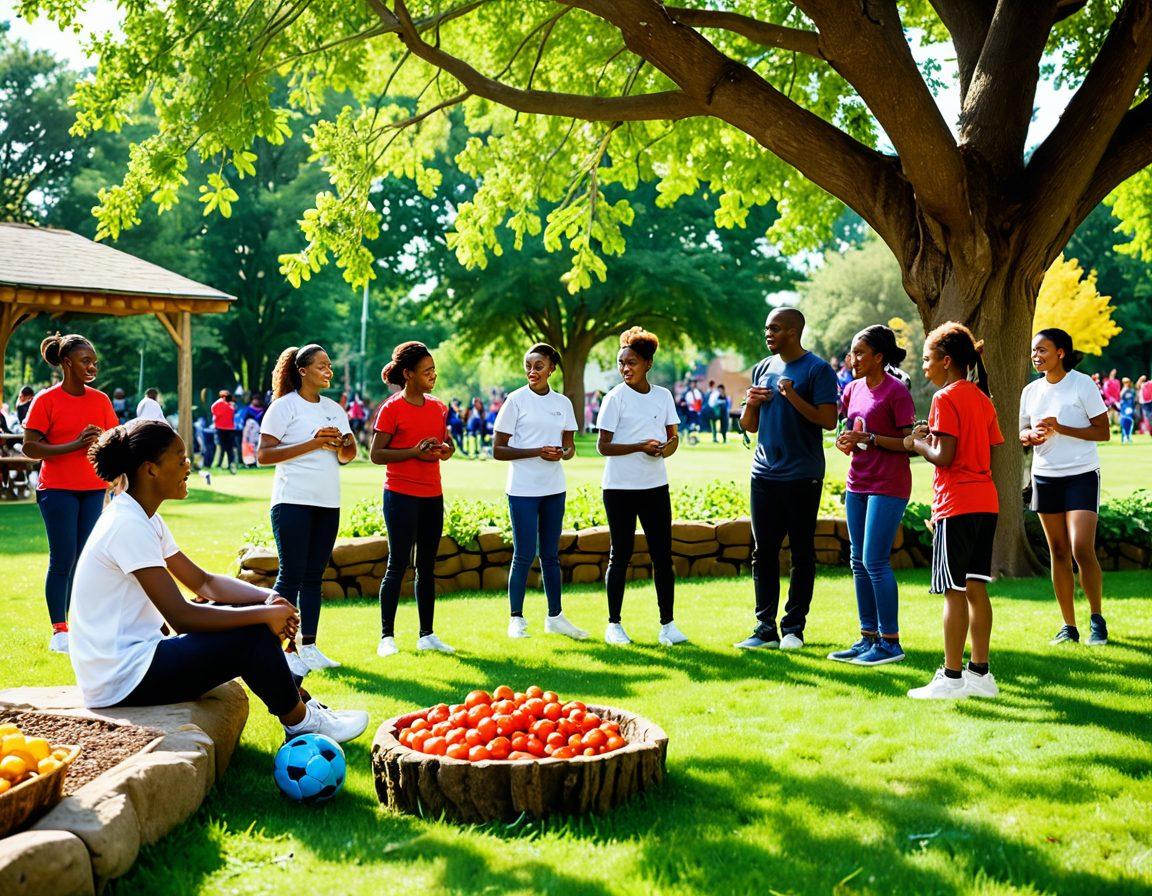Navigating the Storm: Essential Strategies for Teen Mental Wellness and Peer Support
In the whirlwind of adolescence, teenagers often find themselves navigating uncharted emotional territories. The pressure to fit in, excel, and transition into adulthood can be overwhelming, leading to a myriad of mental wellness challenges. However, amidst these trials lies a powerful antidote: peer support. Imagine a strong foundation built on authentic connections and shared experiences—this is the key to empowering teens to foster resilience and emotional health. How can we, as a community, help them cultivate this network effectively?
Empowered through peer relationships, young adults can embark on a journey toward better mental wellness. When teens engage in supportive friendships, they discover that they are not alone in their struggles. Storytelling becomes a tool that breaks down barriers; sharing experiences, fears, and aspirations are what forge profound connections. As Helen Keller wisely said, 'Walking with a friend in the dark is better than walking alone in the light.' This vulnerability can lead to transformative moments of personal development, enabling them to share coping strategies and emotional support.
It’s crucial to recognize the role of the youth community in promoting adolescent health. Community support such as mentorship programs, after-school clubs, or even casual hangouts can create safe spaces where teenagers feel valued and heard. Consider this: what if every young adult had access to a reliable peer support network? They would not only exchange guidance resources but also learn valuable self-care practices from one another. An exploration of youth resources allows teens to build emotional resilience together, creating bonds that significantly boost their psychological health.
Crisis intervention and therapeutic support become powerful tools when informed by strong peer relationships. Having friends who understand and empathize can serve as a first line of defense during tough times. Encouraging adolescents to lean on one another in moments of difficulty is essential for developing emotional intelligence. Young adults who nurture these supportive relationships are more likely to turn to effective mental wellness resources when they need help, rather than resorting to unhealthy methods of coping. Are we contributing to the dialogue on mental health by fostering this kind of supportive environment?
By cultivating a culture that values peer support and emotional well-being, we are investing in the future of our youth. Together, we can empower teenagers to take charge of their mental wellness journey through self-improvement and shared experiences. Engaging families, schools, and communities alike can help establish educational resources that emphasize the importance of mental health and peer connections. Ultimately, if we can shine a light on the healing power of these relationships, we will be able to guide our adolescents toward a brighter and more emotionally stable future. Are you ready to be part of this empowering movement?
Self-Care and Coping Strategies: A Path to Mental Wellness for Young Adults
In a world where the pressures on teenagers and young adults can feel like a relentless storm, finding a safe harbor becomes essential for their mental wellness. We often hear phrases like 'self-care' or 'coping strategies', but what do they really mean in the context of adolescent health? In this journey toward emotional support, the young individuals must navigate their unique paths, discovering what resonates personally with them. By learning effective strategies and embracing guidance resources, they can cultivate a lasting sense of self-worth amidst life's tumultuous waves.
Imagine this: a teen wakes up in the morning, overwhelmed by the weight of expectations—school work, social dynamics, and the struggles of growing up. What if they had tools at their disposal for self-improvement? Coping strategies such as mindfulness practices, journaling, or even a simple walk in nature can serve as powerful outlets for stress relief. Remember, as Mae West once said, 'You only live once, but if you do it right, once is enough.' So, how can we empower our youth to live fully and mindfully?
Community support plays a vital role in the recovery and growth of our youth. Peer support groups can be a lifeline, enabling young adults to share their experiences without judgment. The magic of the youth community stems from the relatability of shared struggles; when teenagers speak openly about their battles with anxiety or insecurities, others will inevitably find solace in their stories. Have you ever participated in a support group? If not, maybe now is the time to seek out these enriching environments, where therapeutic support thrives.
Engaging with emotional support resources means understanding that we don't have to navigate personal development alone. Workshops and educational resources focused on adolescent health can be transformative, equipping teenagers and young adults with the tools they need to process their experiences effectively. These resources often include coping strategies tailored to the unique challenges youths face today. Do you have a favorite mental wellness resource that has helped you or someone you know?
Ultimately, the path to mental wellness involves a tapestry of self-care practices that not only promote psychological health but also empower young adults in their personal journeys. By honing self-care methods such as meditation, physical exercise, or pursuing hobbies, teenagers foster resilience against life’s inevitable challenges. As they learn to prioritize their emotional wellness, they blossom into empowered individuals ready to face whatever storms come their way. So let’s ask ourselves: how can we nurture these vital aspects of self-care and peer support in our youth community?
Navigating Challenges Together: The Role of Community in Adolescent Health
Navigating the complex waters of adolescence can often feel overwhelming. Teenagers stepping into young adulthood face a myriad of challenges that can take a toll on their mental wellness. From academic pressure to social dynamics, these challenges play a significant role in shaping their emotional health. In this journey, one of the most powerful elements of support comes not just from family or professionals, but from the youth community itself. The role of community in adolescent health cannot be overstated; it serves as a foundation on which teenagers can build their self-care, coping strategies, and guidance resources.
Picture this: a group of teenagers gathered in a park, laughing and sharing stories. This simple scene is much more than just a casual hangout—it’s a pivotal moment in their journey of personal development. Peer support can create bonds that foster open conversations about mental health and challenges that allow them to feel seen and understood. As they navigate challenges together, the youth community thrives, reinforcing the idea that they are not alone in this journey. "We are all in the same storm, but not in the same boat," a quote that resonates deeply in these times, reminding us of the unique struggles each individual may face while also highlighting the shared experience.
Have you ever noticed how a heartfelt conversation with a friend can turn your day around? Emotional support from peers can act as a balm to the wounds that life throws at teenagers. In fostering environments where youth can engage freely, communities allow for the sharing of mental wellness resources and coping strategies. When young adults support one another, they build resilience, develop empathy, and learn the importance of reaching out during tough times. This mutual support creates a tapestry of strength that benefits everyone involved, and we must encourage this habit of caring within our schools and social circles.
However, it’s essential to acknowledge that not every teenager feels comfortable reaching out or may even know where to turn for help. This is where community support steps in: educational resources can empower young adults with knowledge on mental health issues and crisis intervention strategies. Workshops, peer-led discussions, and informational sessions can create a sense of belonging and a toolkit for navigating psychological health challenges. By creating spaces where teenagers can explore self-improvement, the community fosters an environment conducive to personal growth and emotional education.
Lastly, let's consider the concept of youth empowerment—an invaluable part of addressing adolescent health. When teenagers are involved in cultivating support systems within their communities, it creates a culture of ownership over their mental wellness journey. They learn how to advocate for themselves and their peers, establishing networks of therapeutic support that stretch beyond mere friendship. Every chat, every shared experience, every act of kindness contributes to a more robust, supportive youth community that stands resilient against the tides of mental health challenges. Ahora asks yourself: what role can you play in creating this supportive environment?


